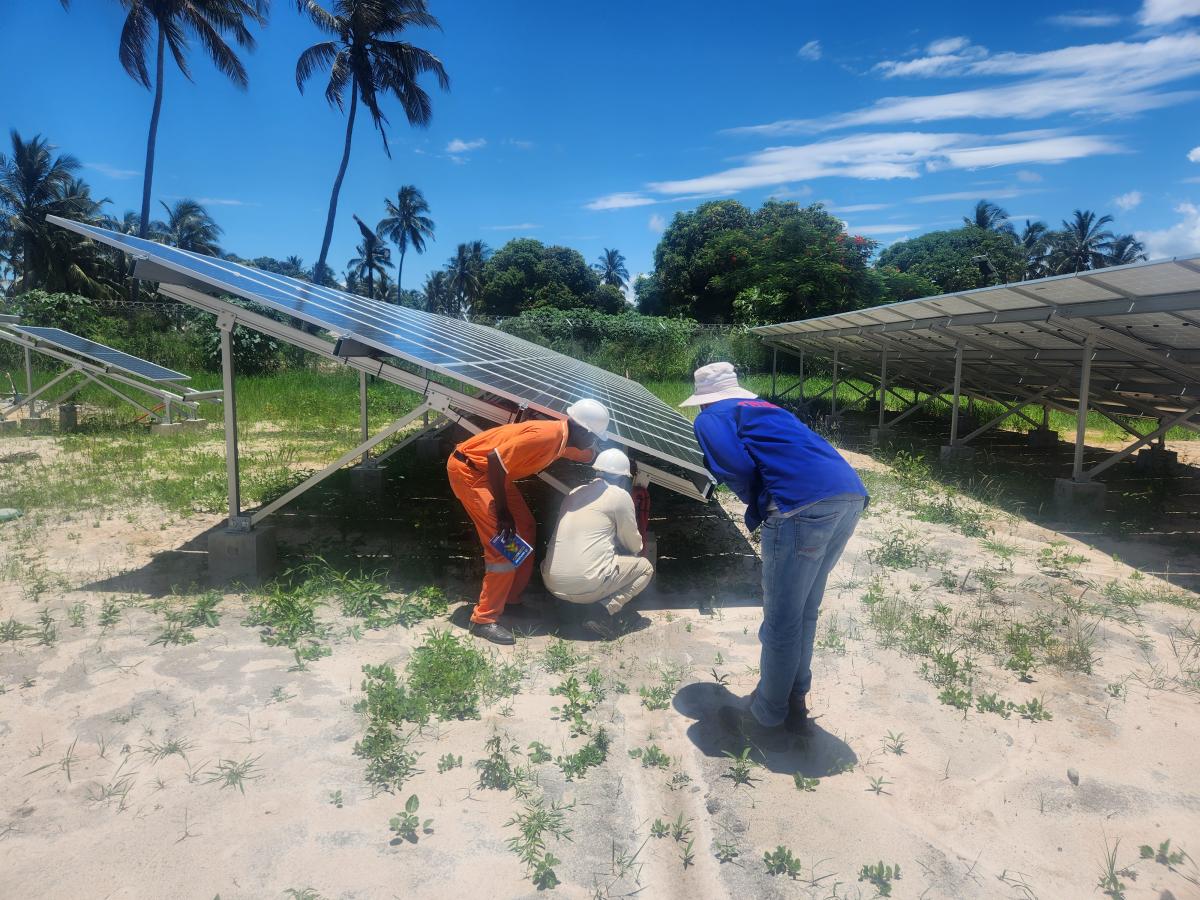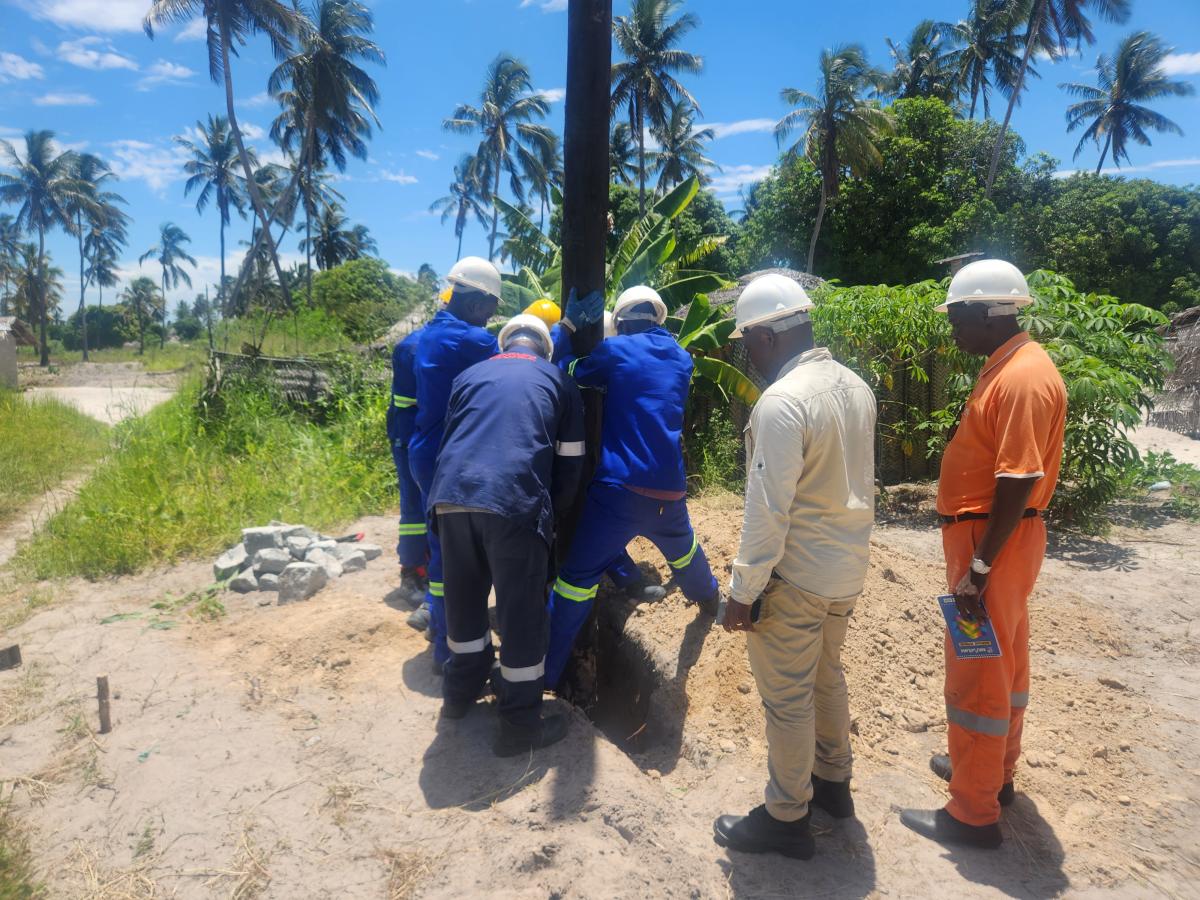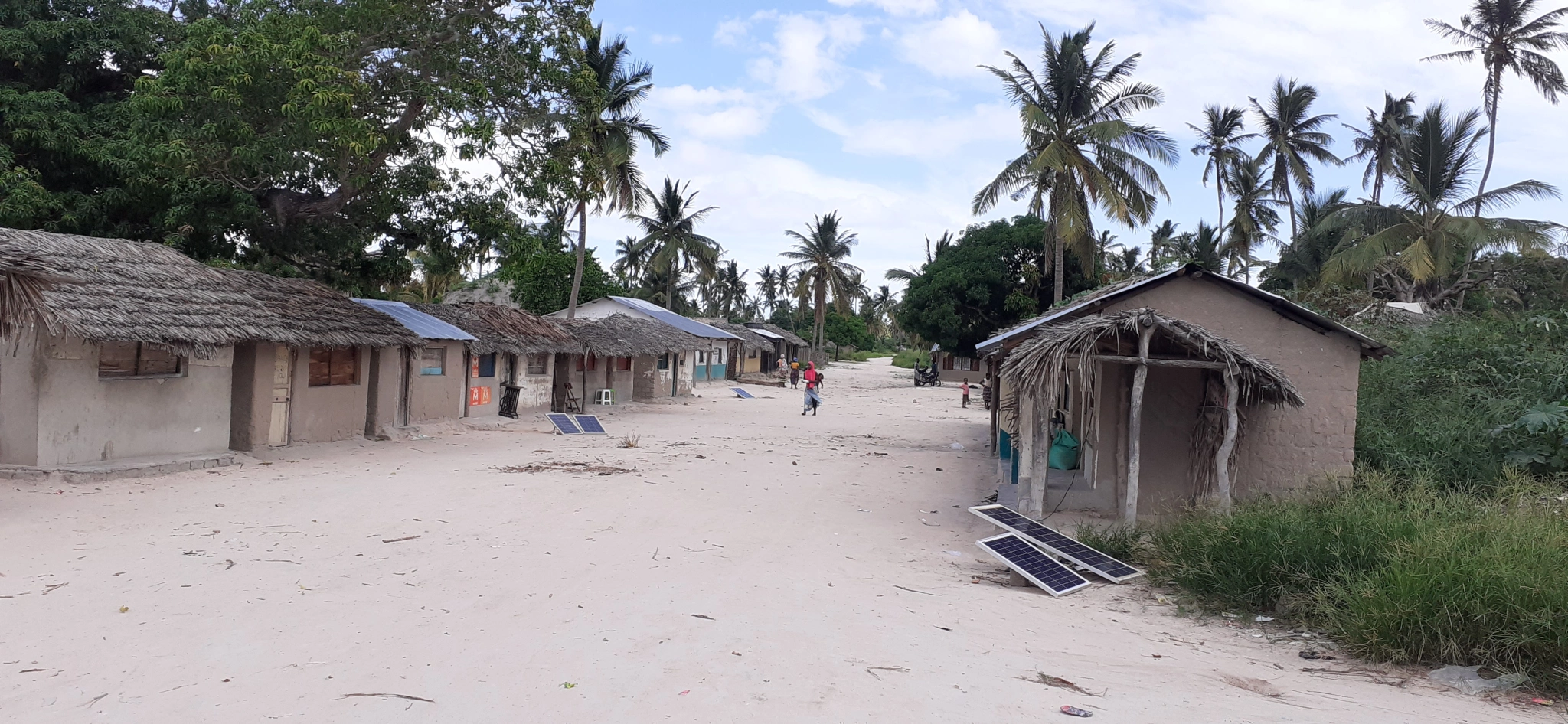New hope arises for the inhabitants of Idugo Island in Mozambique, thanks to a solar powered grid
A major transformation will improve the quality of the life of the residents
Located 72 kilometers from the village of Mocubela, a major transformation is taking place on the island of Idugo. The construction of the solar-powered mini grid will bring significant changes to the community and brighten the future of all residents by providing access to electricity on the island. This initiative is a crucial step towards improving the quality of life of the island's residents and boosting sustainable development in Idugo.For decades, more than 13,000 residents of Idugo (less than 10% have access to energy through small solar panels and batteries) faced major challenges related to electricity on the island. The lack of electricity limits progress and significantly affects the community's quality of life.
Idugo is a fishing community. Currently, to preserve fish, residents need to travel to Pebane to buy ice, which is an hour away by boat and involves high costs. Additionally, health centers and schools on the island have limited operations once it gets dark.
This fact makes the community leader of the island of Idugo, Mr. Felisberto Veloso, unhappy, he tells how hard it is to live on an island without electricity and what implications this brings to day-to-day life :
“The population of the island of Idugo is composed of mostly fishermen and life becomes very complicated without energy, as we cannot store the fresh fish. To prevent the fish from spoiling, some are salting it and others are drying the fish in the sun. At the schools, we don't have night shifts and in hospitals, they use small battery-powered lamps, which makes night births very difficult and dangerous. Part of the population ends up leaving the island to build and live outside the island, in Pebane, Gurai, Tapata, and Mocubela.”
This situation highlights the critical importance of access to electricity and how the lack of it impacts many aspects of daily life. The search for sustainable and affordable solutions to meet this need is fundamental to improving the quality of life of the inhabitants of Idugo.
With the support of the Government of Mozambique (through the Energy Fund- FUNAE) and Belgium (through the development agency Enabel), a solar-powered mini grid is being built on the island to the relief and joy of the local population. This is a plant with a capacity of 230 kWp and 1330 kWh of storage, supplying energy to a distribution network with an extension of 4.2KM of medium voltage and 45KM of low voltage, and it will connect 1125 homes, commercial establishments, health facilities, schools, administrative building, churches and ensure public lighting for 200 public lamps in the 3 neighbourhoods of the island.
A DREAM ABOUT TO COME TRUE!
Since the start of the works in September 2022, the construction of the Idugo mini grid has been a constant challenge. The island of Idugo is only accessible by boat from Gurai (Bajone, Mocubela district) or Pebane. Furthermore, the rainy season significantly limits the possibilities for progressing the work. The absence of a pier for docking and unloading heavy equipment, such as generators and transformers, makes the construction of this mini grid extra challenging compared to the other mini grids under construction in Zambézia and Nampula Provinces.Currently, the works are progressing at a good pace, and the contractor (the ENERSOL/AZIMUT360 consortium with Mozambican subcontractor Tecnel) already has completed the construction of the plant and the battery house. This noticeable progress fills the local community with hope because it envisions the possibility of having finally electricity on their island and symbolizes the opportunity to further develop the island.
February 1st will be remembered by all Idugo islanders, as well as for the team involved in the construction of the mini grid. That was the day the first posts of the distribution grid were erected. According to the Intervention Officer of the project, Arn Jonkers, “the installation of the first pole is a very important milestone for the project, since the construction of the distribution network is part of the mini grid construction that requires the most time. Idugo is only accessible via boat, which means that a mini grid and/or individual solar systems are the only options for the population to access energy. Furthermore, being a fishing community, they need energy to conserve fish, making access to electricity an significant catalyst for development on the island. So, Idugo is a classic example of productive use of energy in a mini grid”.
With the ongoing installation of the mini grid, the island's residents can already dream about the big changes the mini grid can bring to their lives. What was almost impossible is now close to being a reality for residents. The community leader, Mr Felisberto Veloso, confirms this fact by saying, “years ago I could never have imagined that we could have energy, but now with the installation of the poles, the entire population already believes that they will actually be able to have energy. We hope to see changes on our island, we hope to finally see development arrive.”
The development that the community leader talks about is centred on concrete points as he presents it to us, “for our schools, they could have night shift and this will mean that we will have more classes and more people studying in 2025, there are people who want to study, but it can only be at night. In the hospital, we will be able to have safe births at night. We already have residents who are building conventional houses and many of them have already given up on the idea of leaving the island because they know that development has already arrived. We have 3 markets and the stalls (stores) are increasing, many have already bought freezers, televisions and are just waiting for the power to be turned on”.
The works are not yet finished, but it is with great satisfaction that we look at the enthusiasm that the community shows. The mini grid is more than cables, batteries, and solar panels, it is the promise of a better future for the Idugo Island community.
The Idugo mini grid will provide clean and sustainable energy, boosting economic development and improving quality of life.
Laatste nieuws van dit project
Geen nieuws



